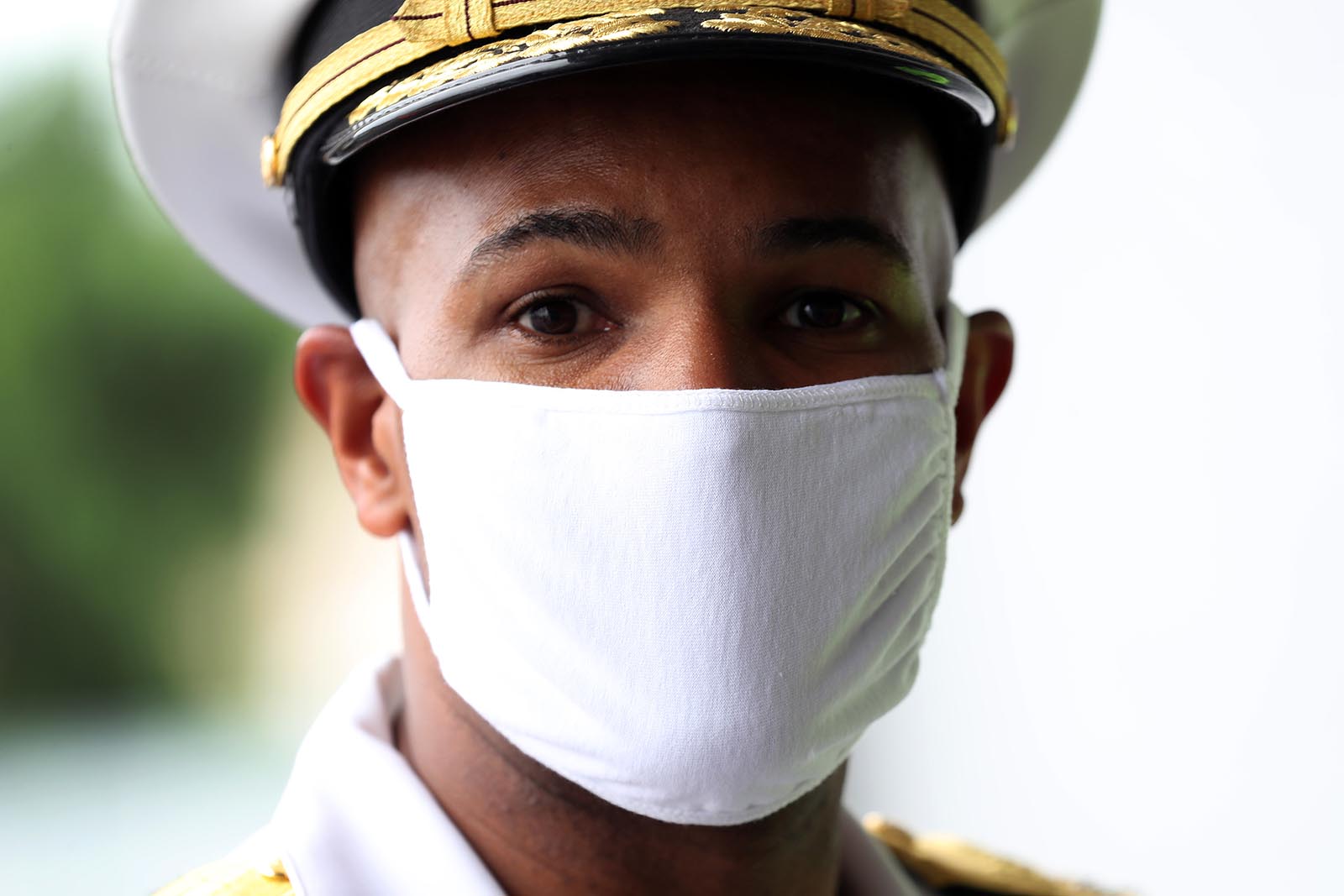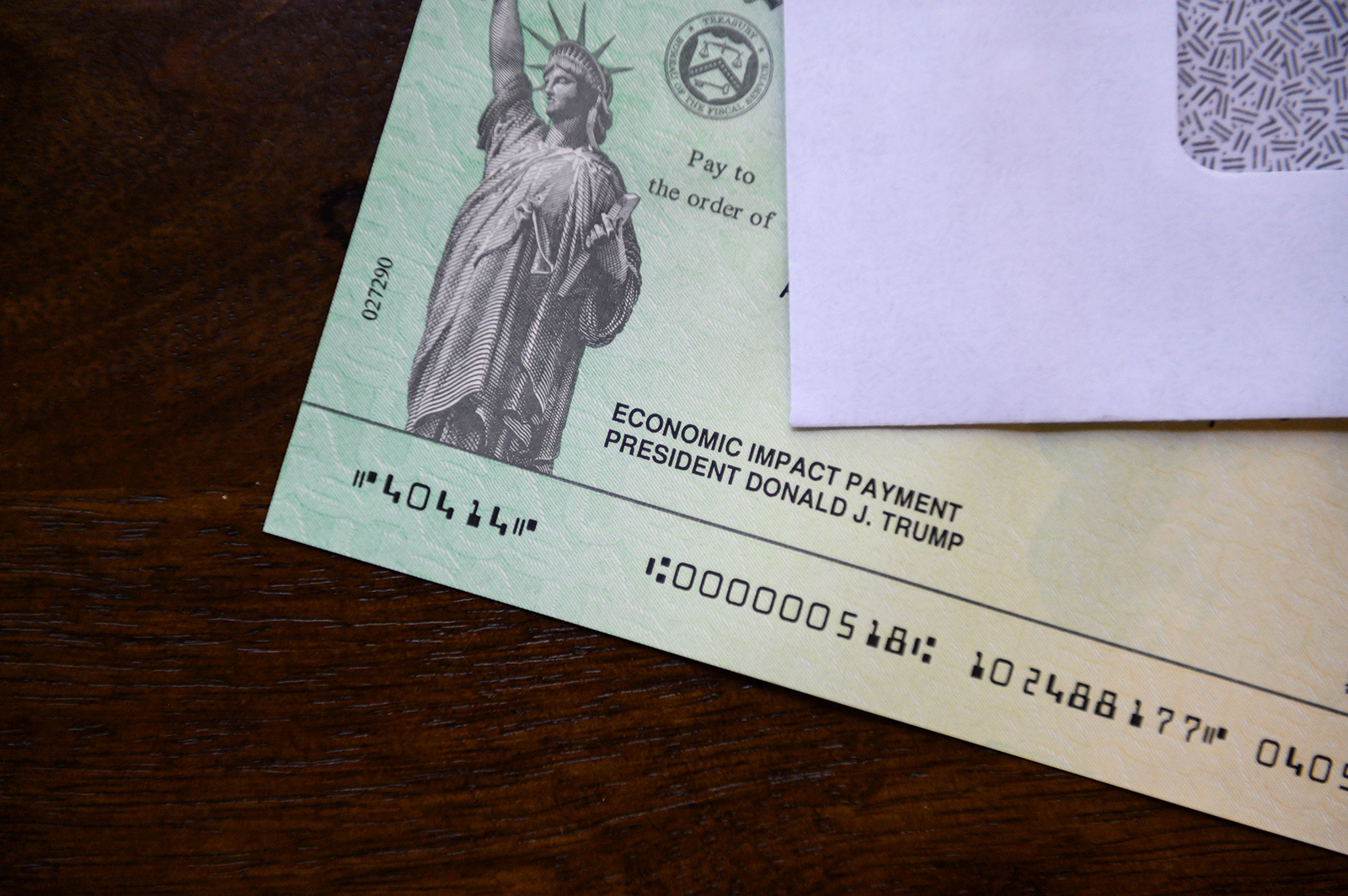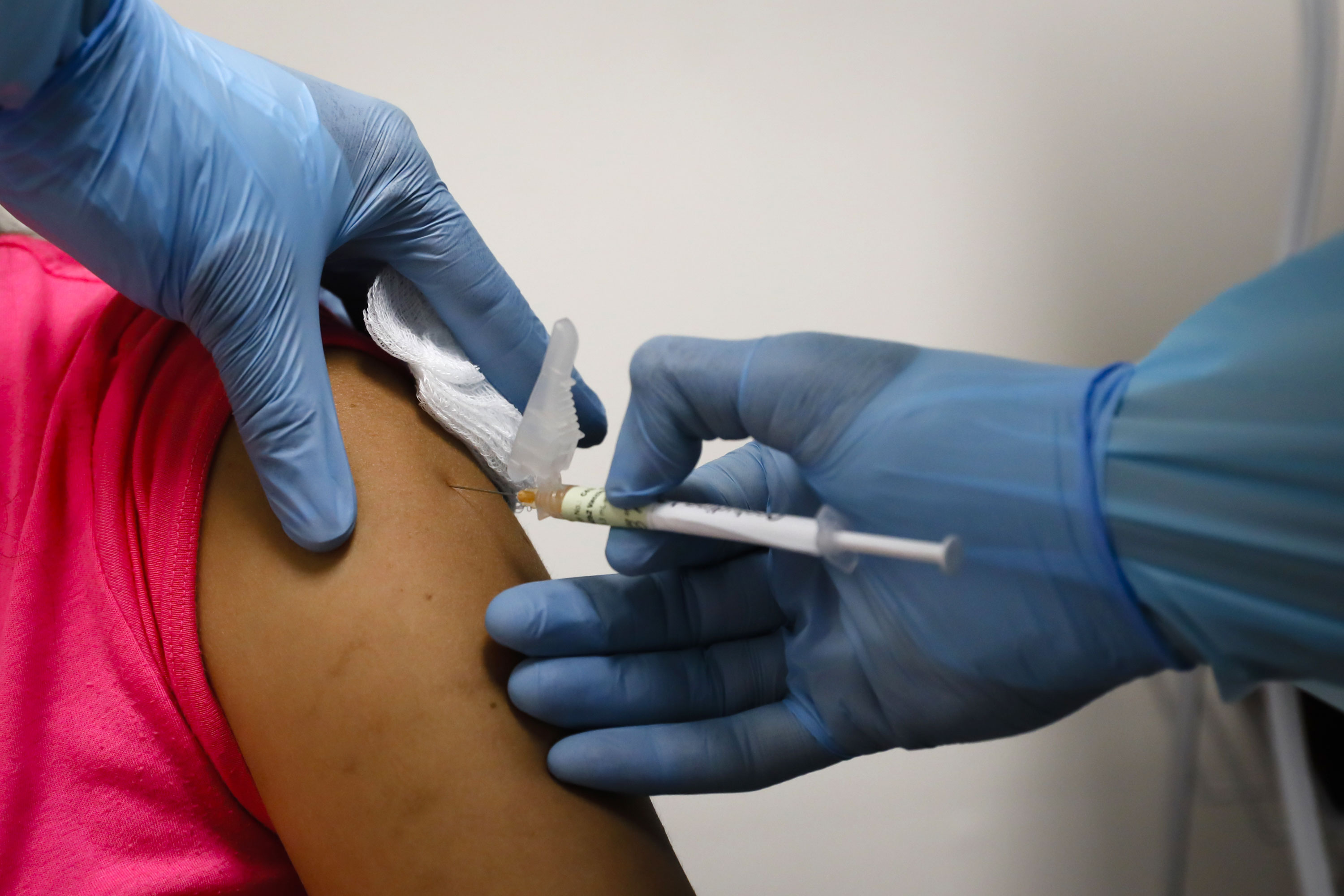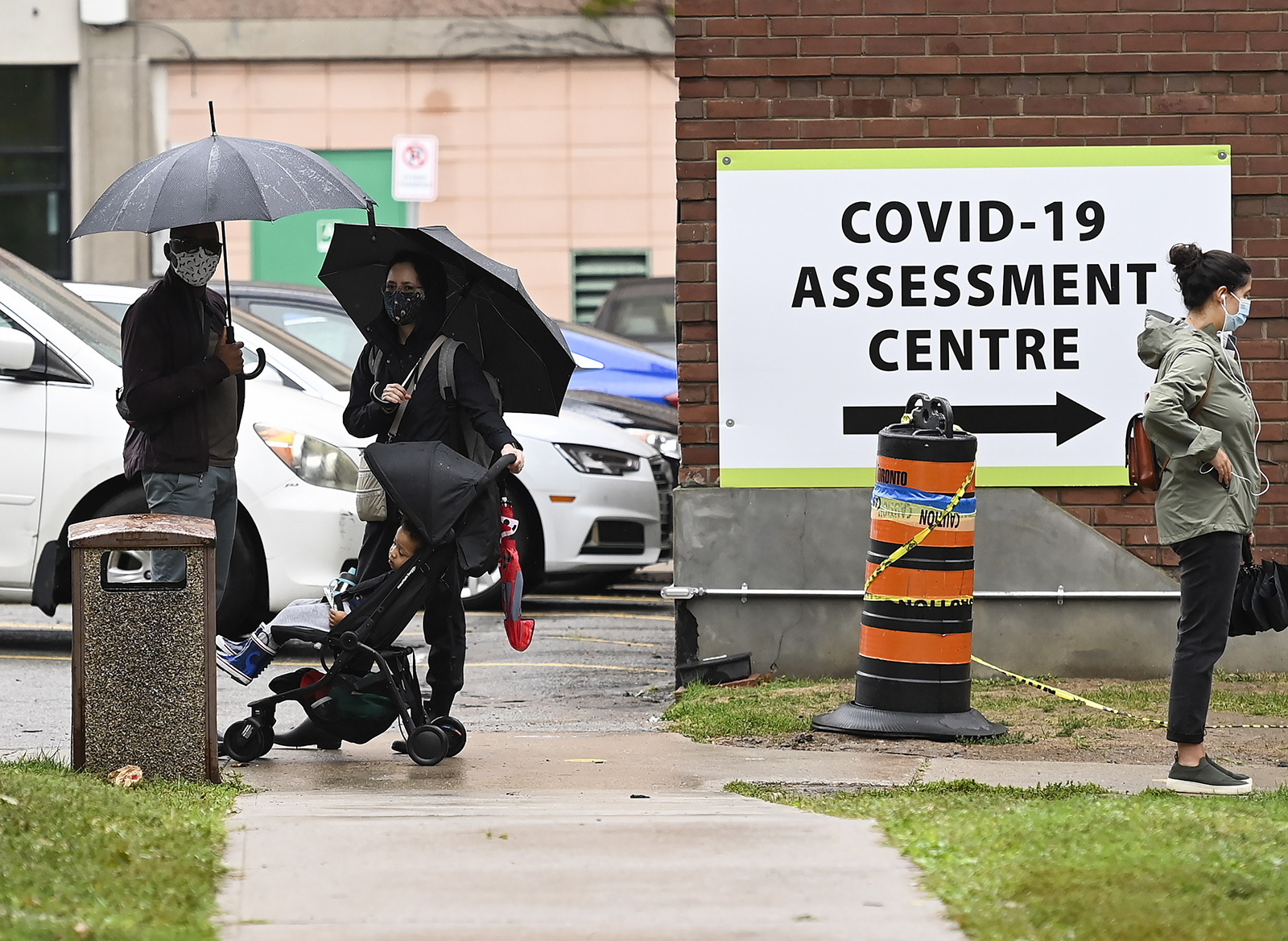Global coronavirus cases surpass 30 million
From CNN's Sugam Pokharel
At least 30,003,378 cases of Covid-19 have now been recorded globally, according to Johns Hopkins University's tally of cases Thursday.
The bleak milestone comes nine months after initial cases were first detected in the Chinese city of Wuhan in mid-December, before continuing to spread across the globe.
The world recorded 1 million cases more than three months later, on April 2. The tally hit 10 million cases on June 28 and took just twelve weeks to triple the figure.
The global death toll stands at 943,203.
Grim distinction: The United States leads with the most Covid-19 infections and deaths worldwide. There are at least 6,669,322 cases and 197,554 deaths from the disease in the country, according to the university's count.
The US, India and Brazil together account for over 50% of the world's coronavirus cases, the university's figures show.
Here's what the US Surgeon General says we have learned from the pandemic so far
From CNN’s Lauren Mascarenhas
 Vice Admiral Jerome Adams, the U.S. Surgeon General, arrives to tour the new federally funded COVID-19 testing site at the Miami-Dade County Auditorium on July 23 in Miami. Joe Raedle/Getty Images
Vice Admiral Jerome Adams, the U.S. Surgeon General, arrives to tour the new federally funded COVID-19 testing site at the Miami-Dade County Auditorium on July 23 in Miami. Joe Raedle/Getty ImagesThere have been more than 6 million cases of Covid-19 in the United States as states work to get infections under control and pharmaceutical companies race to find a vaccine.
But, US Surgeon General Dr. Jerome Adams said the country can aim to get the virus under control now — even before a vaccine is approved.
“Look at New York City. They've gone from worst in the world to a less than 1% positivity rate for several weeks, ongoing," he said during an event hosted by the U.S. Chamber of Commerce Foundation.
Adams said the country has seen more medical advances in the past eight months than in the last decade.
“I'm hopeful that with what we've learned about the virus, with the resources we have in place, and with the prospect of a vaccine on the horizon, plus drugs like remdesivir, convalescent plasma already available, that we're getting a handle on this virus,” he said.
The surgeon general noted that he hopes the country can drive down hospitalizations and deaths through basic public health measures.
Here's what else he said the virus has taught us:
This flu season is going to be important: A surge in flu and Covid-19 cases at once could overwhelm health care system capacity, Adams said, adding that this period of time provides an opportunity to instill vaccine education and confidence in communities.
“We need to understand that, number one, the biggest predictor of who's going to get the Covid vaccine is going to be, I think, who gets the flu vaccine,” Adams said. “It's an opportunity to prime the pump and have that conversation.”
Adams noted that flu symptoms are similar to Covid-19 symptoms, making it hard to tell the two apart.
“Every flu positive that is a Covid false alarm has the potential to disrupt your workplace,” he said.
Adams said employers can make sure people have access to the flu vaccine and encourage them to get it.
The pandemic has "exploited" health disparities: Adams said people of color have been hit harder by the Covid-19 pandemic, pointing to higher hospitalization rates for Hispanic people, American Indians and Alaskan Natives, and African Americans compared to people who are White.
“Simply put, this virus is exploiting and exacerbating preexisting health disparities," he said.
Adams said structural conditions contribute to the disparities.
“Social distancing and teleworking are critical to preventing spread of coronavirus, yet only one in five African Americans and one in six Hispanic Americans have a job that allows him to work from home,” said Adams.
“We know people of color are more likely to live in densely packed urban areas, and in multi-generational homes. They're also more likely to use public transportation. Combined, these and other factors create a greater risk for spread of a highly contagious disease like COVID-19,” he added.
Trump and CDC director are not in "substantial" disagreement over vaccine timeline, Fauci says
From CNN's Shelby Lin Erdman
There’s no substantial disagreement between President Trump and the director of the US Centers for Disease Control and Prevention over the timeline for a coronavirus vaccine, Dr. Anthony Fauci said Thursday.
Fauci said Trump and CDC director Dr. Robert Redfield were “essentially” right Wednesday when they each gave what seemed like a different timeline for a potential coronavirus vaccine said Fauci, who is the director of the National Institute of Allergy and Infectious Diseases.
Redfield told a Senate hearing that it would likely be the second or third quarter of next year – that means late spring or summer – before widespread vaccination could be underway in the US. Asked about this during a news conference later in the day, Trump said Redfield “made a mistake” and was “confused.” He said a vaccine will be available soon, possibly as early as next month.
Fauci did not see a big conflict.
Fauci also addressed Trump’s claim that a Covid-19 vaccine would be available next month.
“What the President was saying is that it is entirely conceivable that we will have an answer by October,” he said. “My projection is that it would likely be November or December. We don't know. We're just going to have to wait to see.”
Read the latest on the race for a coronavirus vaccine here.
Could you get more stimulus money? Here's the latest on the debate over a second round of federal aid.
 Will Lanzoni/CNN
Will Lanzoni/CNNCongress has been trying to agree on a new federal stimulus plan to help Americans during the pandemic.
Here's what we know and where things stand:
The timeline: With fewer than two months until the election, the odds for a massive stimulus compromise sooner than that is very unlikely.
Senate Majority Leader Mitch McConnell put it this way: "I wish I could tell you we were going to get another package but it doesn't look that good right now."
With reporting from CNN's Alex Rogers, Phil Mattingly, Clare Foran and Manu Raju
More than 197,000 people have died from Covid-19 in the US
From CNN’s Virginia Langmaid
There are at least 6,650,570 cases of coronavirus in the US and at least 197,244 people have died from the virus in the country, according to Johns Hopkins University's tally of cases.
So far on Thursday, Johns Hopkins has reported 20,519 new cases and 481 reported deaths.
The totals include cases from all 50 states, the District of Columbia and other US territories, as well as repatriated cases.
What you need to know today about the race for a coronavirus vaccine
 A health worker in Hollywood, Florida, injects someone during clinical trials for a Covid-19 vaccine on September 9. Eva Marie Uzcategui/Bloomberg/Getty Images
A health worker in Hollywood, Florida, injects someone during clinical trials for a Covid-19 vaccine on September 9. Eva Marie Uzcategui/Bloomberg/Getty ImagesThere's been a lot of news lately about a possible coronavirus vaccine, as researchers around the world continue their work.
If you're just reading in now, here's what we know about the race for a potential vaccine:
Canada's new positive Covid-19 cases double in less than a month as officials ramp up restrictions
From CNN’s Paula Newton
 People line up to be tested for Covid-19 at a testing center in Toronto on Sunday, September 13. Nathan Denette/The Canadian Press/AP
People line up to be tested for Covid-19 at a testing center in Toronto on Sunday, September 13. Nathan Denette/The Canadian Press/APDespite widespread mask-wearing and testing, Canada is seeing a rising Covid-19 case count with leaders imposing new restrictions on social gatherings.
New positive Covid-19 cases have doubled in Canada in less than a month with 952 cases reported Wednesday. While this represents about a quarter of new cases, per capita, reported by the US Wednesday, the doubling trend over the past month is a “cause for concern,” according to public health officials.
The vast majority of cases are in people under the age of 40 and although hospitalizations remain low, Canadian officials have started imposing new restrictions in recent days.
According to government data, Canada’s positivity rate remains low at 1.4%, however, less than a month ago the positivity rate was at just 1%.
How the government is responding: Canadian Prime Minister Justin Trudeau said Wednesday his government is stepping up with millions more in funding for provinces to combat the virus with more testing and contact tracing.
On Thursday, the province of Ontario announced new restrictions on social gatherings in the Toronto area and Ottawa, the nation’s capital.
Private, social gatherings in those regions will now be restricted to 10 people indoors, 25 outdoors although the restrictions do now apply to places like bars and restaurants, movie theaters, gyms and notably schools.
Public health officials say those businesses and venues have not been associated with a dramatic increase in cases. Rather, it’s private parties and gatherings with friends and family which have led to the rise in cases.
Ontario will now impose some of the most severe fines in North America for offenders with a $7,500 minimum fine for the host and jail time a possibility.
“This is to send a message for the reckless, careless people who want to hold these parties and put their neighbors and community in jeopardy, so just follow the rules,” said Ford adding, "They must be a few fries short of a happy meal, these people."
Other impacted areas: The province of Quebec is also coping with a rise in cases, especially in Montreal. Public health officials say there is no definitive evidence of a second wave just yet but that the trend is worrying.
Quebec has been imposing new but moderate restrictions in recent days, like banning karaoke, responsible for one of the worst outbreaks in the province in recent weeks. But health officials say they are still reluctant to go further with new restrictions at this point.
“We have to have some stability in the data through time to be able to have an adequate appreciation of things because if you react to a peak and the next day it goes back down, you will have over reacted, it’s like using a cannon to kill a fly,” said Dr. Horacio Arruda, Quebec’s director of public health, during a news conference Thursday.
CDC forecast now projects up to 218,000 total US coronavirus-related deaths by Oct. 10
From CNN's Ben Tinker
An ensemble forecast published Thursday by the US Centers for Disease Control and Prevention now projects there will be 207,000 to 218,000 coronavirus deaths in the United States by Oct. 10.
Unlike some individual models, the CDC’s ensemble forecast only offers projections a few weeks into the future. The previous ensemble forecast, published Sept. 10, projected up to 217,000 coronavirus deaths by Oct. 3.
At least 197,244 people have already died from Covid-19 in the United States, according to data compiled by Johns Hopkins University.
Here's how US schools and colleges are responding to the pandemic
 University of Idaho students line up for a Covid-19 test on Wednesday, August 13, outside the Student Recreation Center in Moscow, Idaho. Geoff Crimmins/Moscow-Pullman Daily News/AP
University of Idaho students line up for a Covid-19 test on Wednesday, August 13, outside the Student Recreation Center in Moscow, Idaho. Geoff Crimmins/Moscow-Pullman Daily News/APSchools and universities are coping with augmented learning styles as Covid-19 infections continue to be reported on campuses around the US.
Here's the latest on schools and universities around the country:

 5 years ago
897
5 years ago
897 

